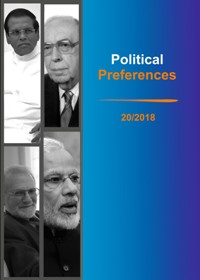Social divisions in discursive approach – political narrative of Law and Justice after 2015 parliamentary elections
Social divisions in discursive approach – political narrative of Law and Justice after 2015 parliamentary elections
Author(s): Katarzyna Domagała, Mateusz ZielińskiSubject(s): Media studies, Government/Political systems, Electoral systems, Politics and communication, Post-Communist Transformation, Sociology of Politics
Published by: Wydawnictwo Uniwersytetu Śląskiego
Keywords: Post-Rokkanian analysis; Semantic Network Analysis; cleavages;
Summary/Abstract: Many political scientists treat Poland as a democracy that confront the challenges from the "tyranny of the majority", since Law and Justice (Prawo i Sprawiedliwość, PiS) party gained parliamentary majority in 2015. It is also considered that using constitutional amendments, institutional arrangements and new legislation PiS has deeply divided Polish society. The aim of the paper is to examine the multidimensional nature of hidden social divisions that strongly reapear in Poland after 2015. In the paper authors analyze their historical aspects, visualize them and try to disclose direct impact that political narration of the winning party has on them. By analyzing PiS stance – presented at the official PiS YouTube channel – in the light of classical Lipset-Rokkan theory of socio-political cleavages we are trying to show that discursive strategies adopting by parties might go against existing deep-rooted social divisions due to historical narration adopted by the party.
Journal: Political Preferences
- Issue Year: 2018
- Issue No: 20
- Page Range: 5-22
- Page Count: 18
- Language: English

